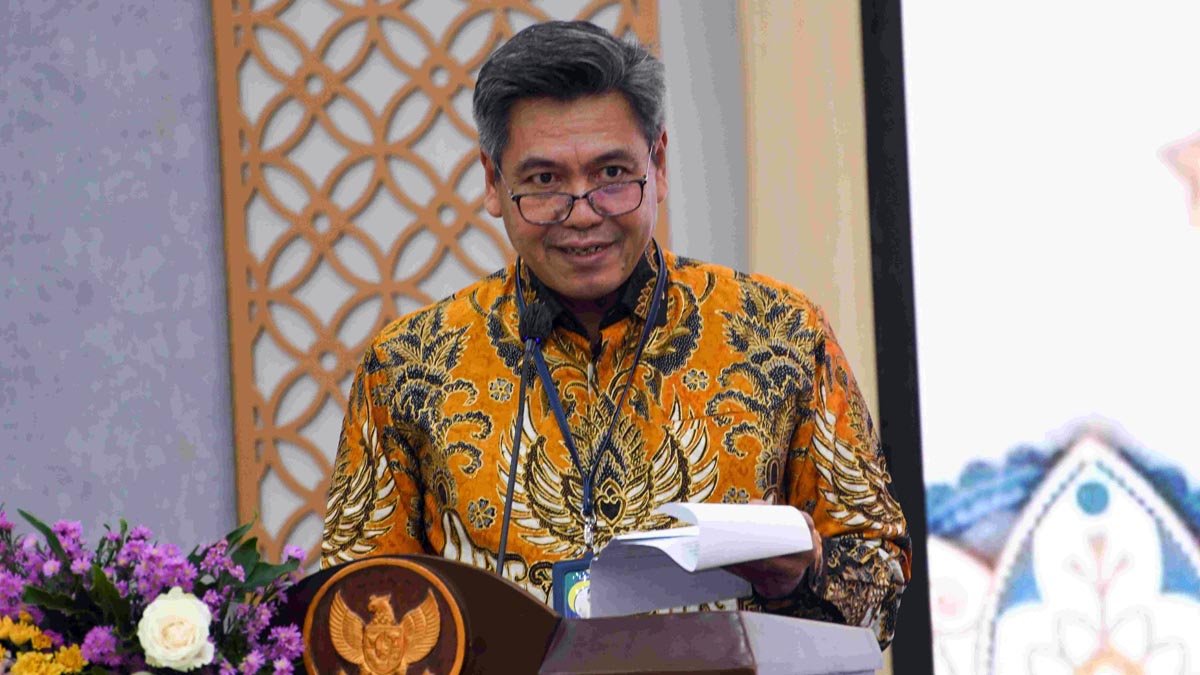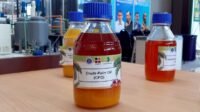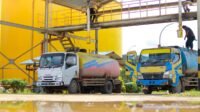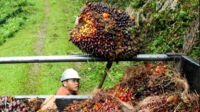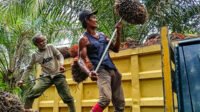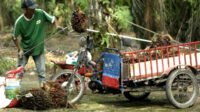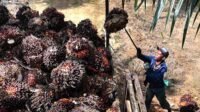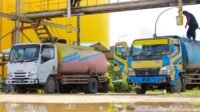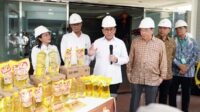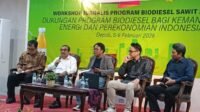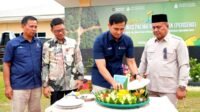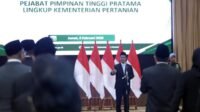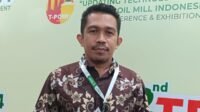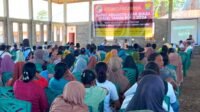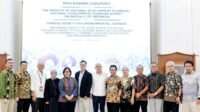PALMOILMAGAZINE, JAKARTA — The Ministry of Industry (Kemenperin) has officially launched a pilot project to produce palm sugar sap from old oil palm trunks derived from replanting programs. This initiative aims to drive palm oil downstream development while boosting grassroots economic empowerment.
“This event follows the signing of a Cooperation Agreement between PTPN IV/Palmco and the Gerak Nusantara Sejahtera Producers’ Cooperative (KPGNS) on April 10, 2025,” said Putu Juli Ardika, Director General of Agro Industry at Kemenperin, during a virtual speech on Monday (June 23).
He explained that the pilot project serves as a concrete step in implementing the government’s industrial downstream acceleration policy. It also taps into the underutilized potential of old palm trunks from replanting activities.
Also Read: Bakrie and BNI Partner to Support Palm Oil Replanting for National Food and Energy Security
“The use of old oil palm trunks for palm sap production is more than just an industrial innovation. It offers a sustainable economic solution for communities, especially during the first three years post-replanting, when the new palm trees have yet to produce yield,” Putu stated, quoted by Palmoilmagazine.com from the Ministry of Industry website.
Estimates show that one hectare of land with 25–30 old palm trees can yield 5,000–6,000 liters of sap per month. With the national replanting target set at 300,000 hectares per year, Indonesia could potentially produce 1.5 to 1.9 million kiloliters of palm sap annually — a market valued at approximately Rp3 trillion. This presents a tremendous opportunity to foster community-based enterprises in plantation areas.
Putu noted that palm sugar produced from this sap has strong market potential, serving as a key ingredient in soy sauce, traditional syrups, and ready-to-consume liquid sugar. “Processing technology for palm sugar has advanced significantly, and its use for consumption is supported by the national standard SNI 01-6237-2000 for palm sugar,” he added.
The involvement of plantation companies, cooperatives, and MSMEs (micro, small, and medium enterprises) is seen as essential for creating mutual benefits and enhancing the sustainability of local economies in replanting areas.
“This collaboration is anchored by an MoU and Cooperation Agreement (PKS) previously signed at PTPN IV/Palmco’s Adolina office,” Putu said. The signing event was also attended by members of Indonesia’s House of Representatives (DPR RI) Commission VII, who expressed full support for the initiative and called for pilot projects to be expanded to other key provinces.
He concluded by urging all stakeholders to support the smooth implementation of the palm sap pilot project and ensure it delivers tangible economic benefits to communities.
“For the North Sumatra provincial government, we hope that progress on this program is actively monitored and supported, so that any technical or non-technical challenges can be resolved quickly,” he emphasized. (P3)

